Writer Jeremy Adams hopes "The Search for Barry Allen" gets Dark Crisis readers checking The Flash out
The Flash family is not "a dysfunctional family like the Bat-family, where it's all anger and curmudgeonly," says Jeremy Adams
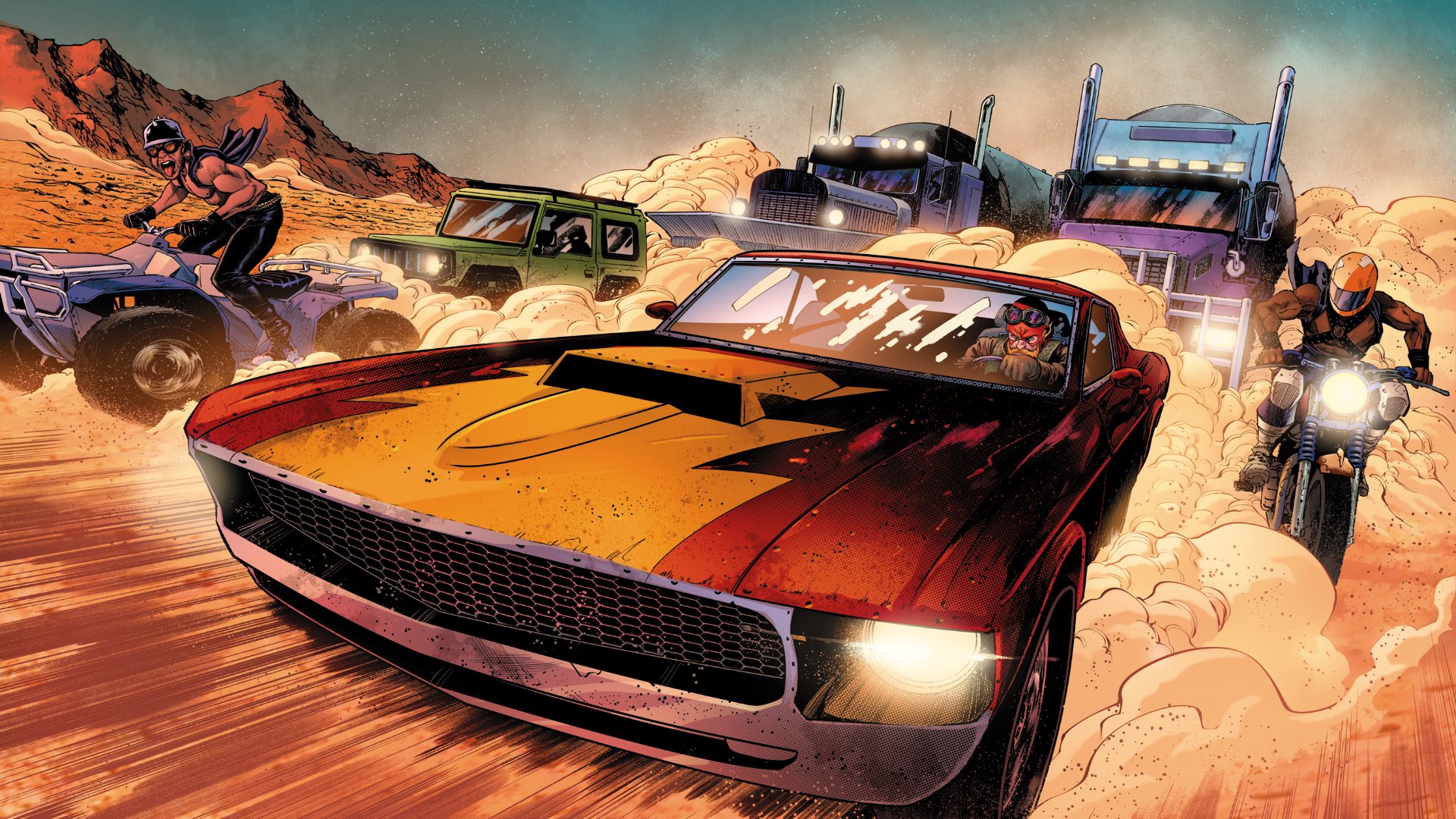
The Justice League is dead, and the Dark Crisis has begun. The tragic events of Justice League #75 are having ripple effects all across the DCU, and that's especially true for its family of speedsters.
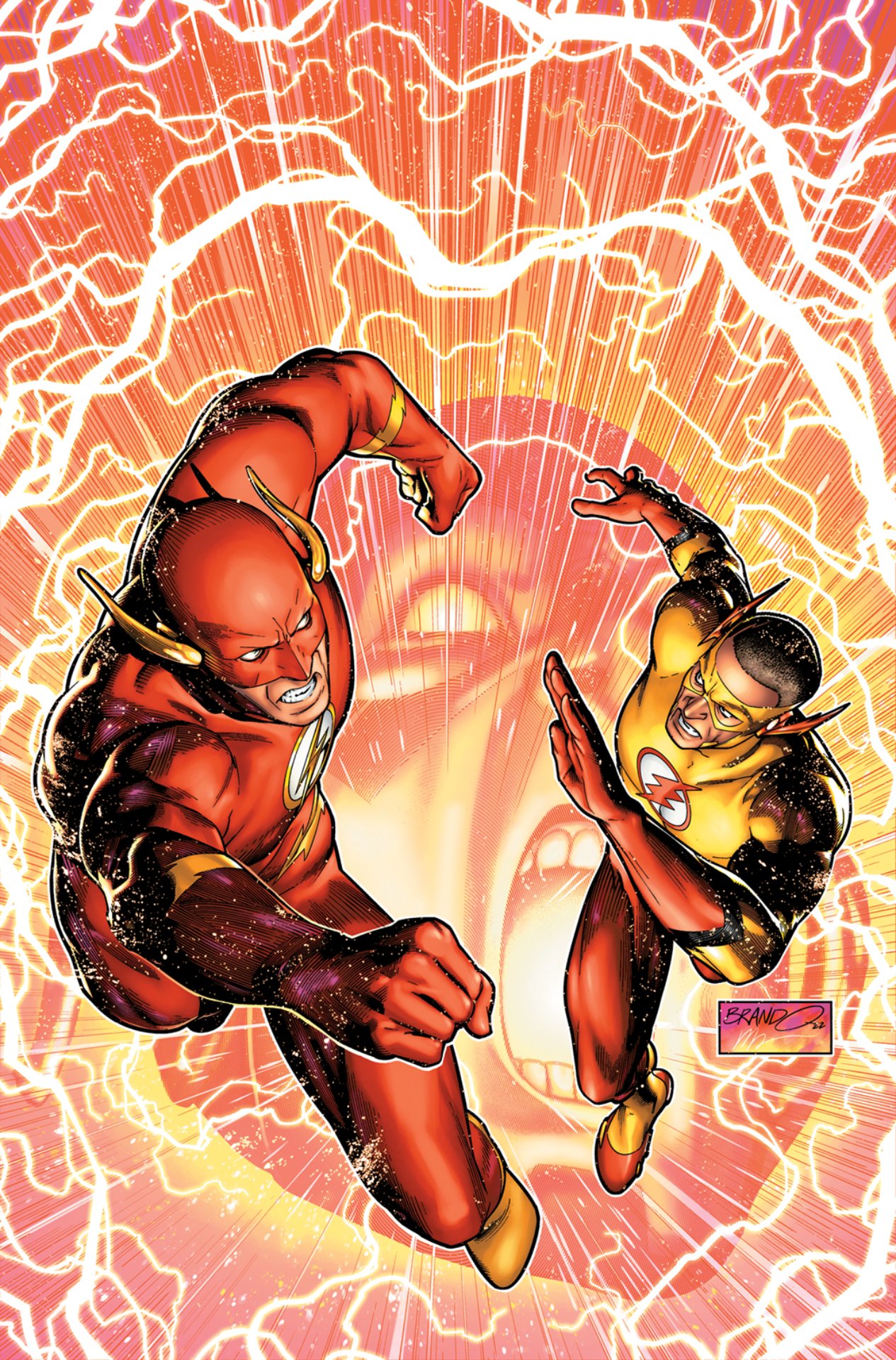
Speed Force users have a long history of being deeply involved in DC's Crisis events, and Dark Crisis is no exception. As the rest of DC's heroes mourn, the Flash family will need to locate Barry Allen who, despite not dying with the rest of the Justice League, is nevertheless missing.
Writer Jeremy Adams will be tackling their search along with artist Amancay Nahuelpan, in a storyline they're calling 'The Search for Barry Allen.'
Ahead of this adventure, which begins in Flash #783, Newsarama sat down with Adams to talk about the Flash family, what they'll have to do to find Barry, and how it will affect the Flash storyline moving forward. Read on for more.
Grant DeArmitt for Newsarama: So this story is called 'The Search for Barry Allen,' and you've got the whole Flash family using this incredible technology to do just that. Can you just tell us about the tech?
Jeremy Adams: Sure. This issue isn't just a Dark Crisis tie-in, I think it's also going to be the first opportunity for some people to join the Flash fold, to know what's going on in the series. What's been happening since Flash #768 is that Wally was leaping into other speedsters' bodies. During that time, Barry and Mister Terrific, with a little help from Oliver Queen, developed a way to kind of track Wally through the Speed Force. Then Mister Terrific refined that tech because he's a genius.
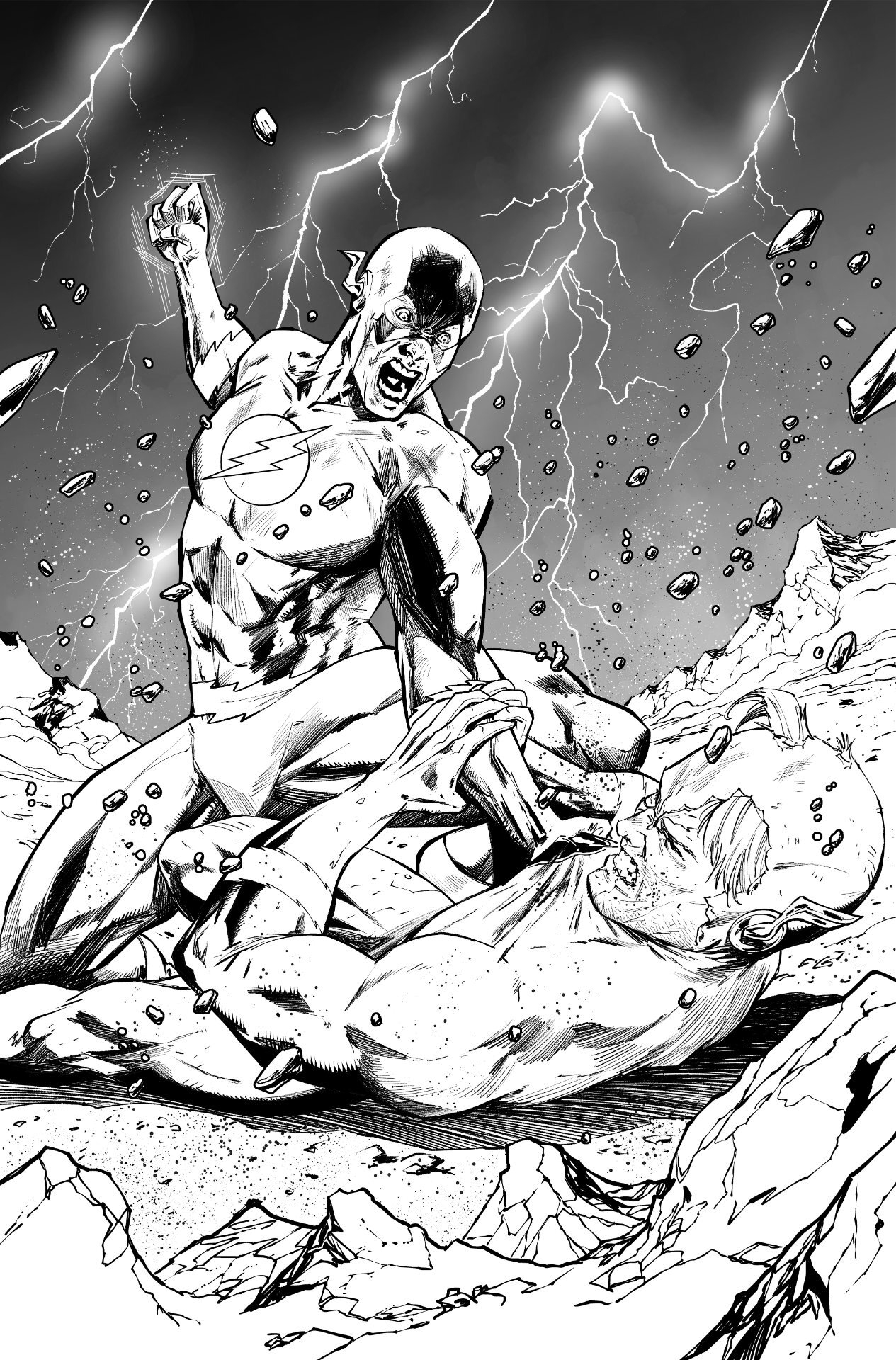
Barry is one of those speed conduits. [The other speedsters] know he's connected to the Speed Force, so though they don't know where he is, they have to track him. The technology isn't perfect, so they kind of created this gate that allows them to speed conduits to go in and look for him.
Comic deals, prizes and latest news
Get the best comic news, insights, opinions, analysis and more!
Nrama: Where are you getting all these ideas about the Speed Force? Obviously, the frequency thing goes all the way back to Flash #123, Flash of Two Worlds. But are you pulling from other sources as well?
Adams: Well, the Speed Force is so nebulous. Some people are like, "Oh it's an intelligence." Then others, "no it's just a force." So there's a little bit of super-science that I'm picking up from the DC proper and from former Flash books, whether it's from like Johnny Quick stories or Wally being trapped in the Speed Force. However, there's this kind of indication in former books that there are tributaries to the Speed Force. And that it's something that you can enter and exit.
One of the things that's fun is, if you look at the Grant Morrison multiverse map, you can see that there's this vibe that the Speed Force connects everything. That seems like it's already there in the zeitgeist. I'm codifying that a little bit, at least for this book. Then you have somebody like Mister Terrific, who has employed Wally as an engineer, who knows about this technology and has used it before in other issues.
Nrama: Very interesting. Well, something else that's being codified in this book is the whole Flash family. You're bringing them all together. Can you tell me about writing that group? Did you come into it with any favorites? Are you coming out with any?
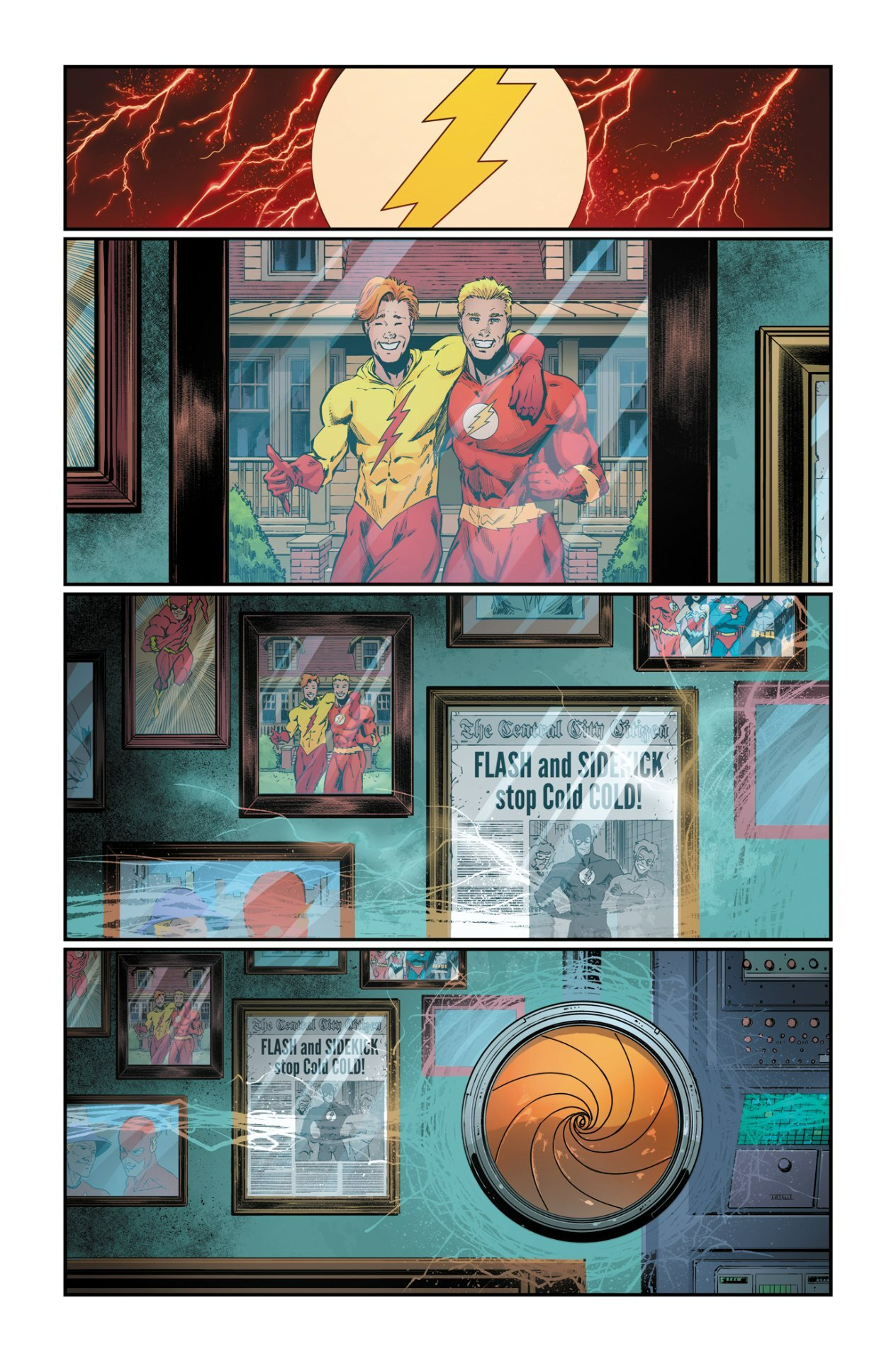
Adams: I'm coming out of it with some favorites, yeah. This is kind of the first time that I've been able to write them all together. Sans Bart, sadly. All the Bart fans are going to come at me. But it's not my fault! You put that in your article.
Nrama: Done.
Adams: He's out with Young Justice! I swear it's not my fault.
Nrama: We'll tell them, don't worry.
Adams: Good. Anyway, the joy of my previous runs was that Wally got to jump into those characters' bodies. This time, I get to explore those characters, at least in a minor fashion. It's a way for me to acclimate myself to the characters. As the Flash book expands, it goes from a book about Wally redeeming himself to being about his family and his kids and his sidekick and the bigger Flash family. That's going to be more of a recurring theme for the book as I move forward. Especially with some stuff that I have planned for next year.
I'm a big fan of Jai and Irey. I love those kids. I think they're hilarious. I love exploring those characters. I love Wally too, I love Ace, but I found myself really liking Max Mercury and Jesse Quick. I really like Jesse Quick a lot. There's something about her that's special, something that I've almost got my hands around.
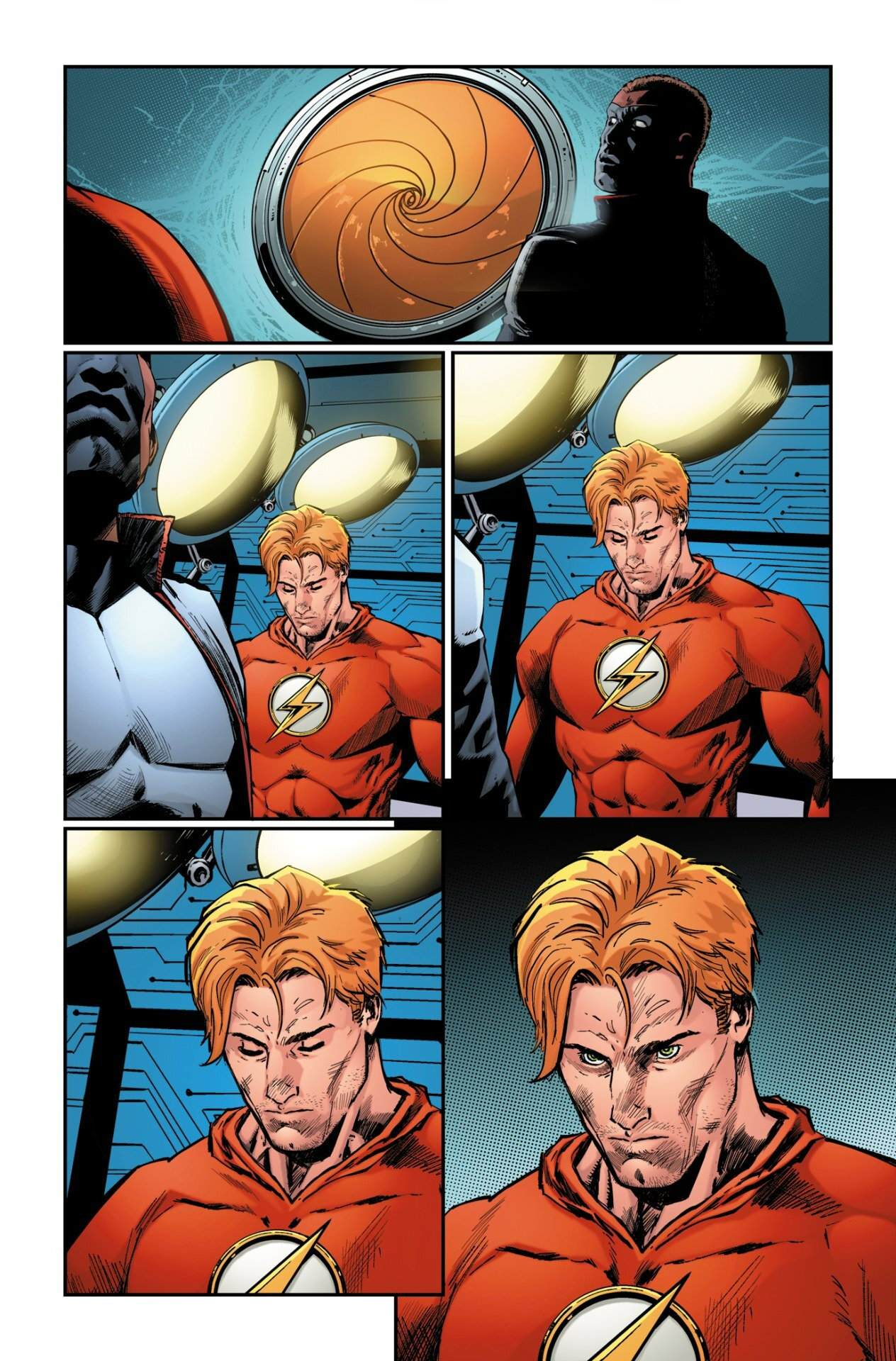
Then Max is this Enigma to me. He's this weird Highlander speedster that went forward in time, but now he's stuck here and he's made his life here. I want to give him an aspect of the time that he was born in, you know he was born in the Old West, the 1880s. So I have him saying Old West sayings and stuff that just kind of gets worked into the conversation.
This book, it's a search for Barry Allen, but within it is a lot of crazy ideas and really fun adventures. You're not going to pick up this book and only think, "oh, so they're looking for Barry." No, you're thinking, "Where's Jai and Irey? What is that behind them in that one panel? Why is Max in the desert?" That's the joy of doing something with Amancay Nahuelpan.
Nrama: Yeah, talk to us about working with Amancay. There are three different realities that we know the Flash family is going to have to hop between, so what's the process look like developing those realities with him?
Adams: I'm a child of Star Wars. Aren't we all? One of the things that was always great about Star Wars was the different environments. That's definitely something that got in my head. In this book I'm thinking, okay, I want this desert environment. Okay, I want this urban environment. Then we have the environment that has already been established by Josh Williamson when we see Barry in this kind of dreamified Silver Age planet. When you see those colors it's really going to solidify what that is. I think that's an issue of Justice League Incarnate?
Nrama: Justice League Incarnate and Infinite Frontier...
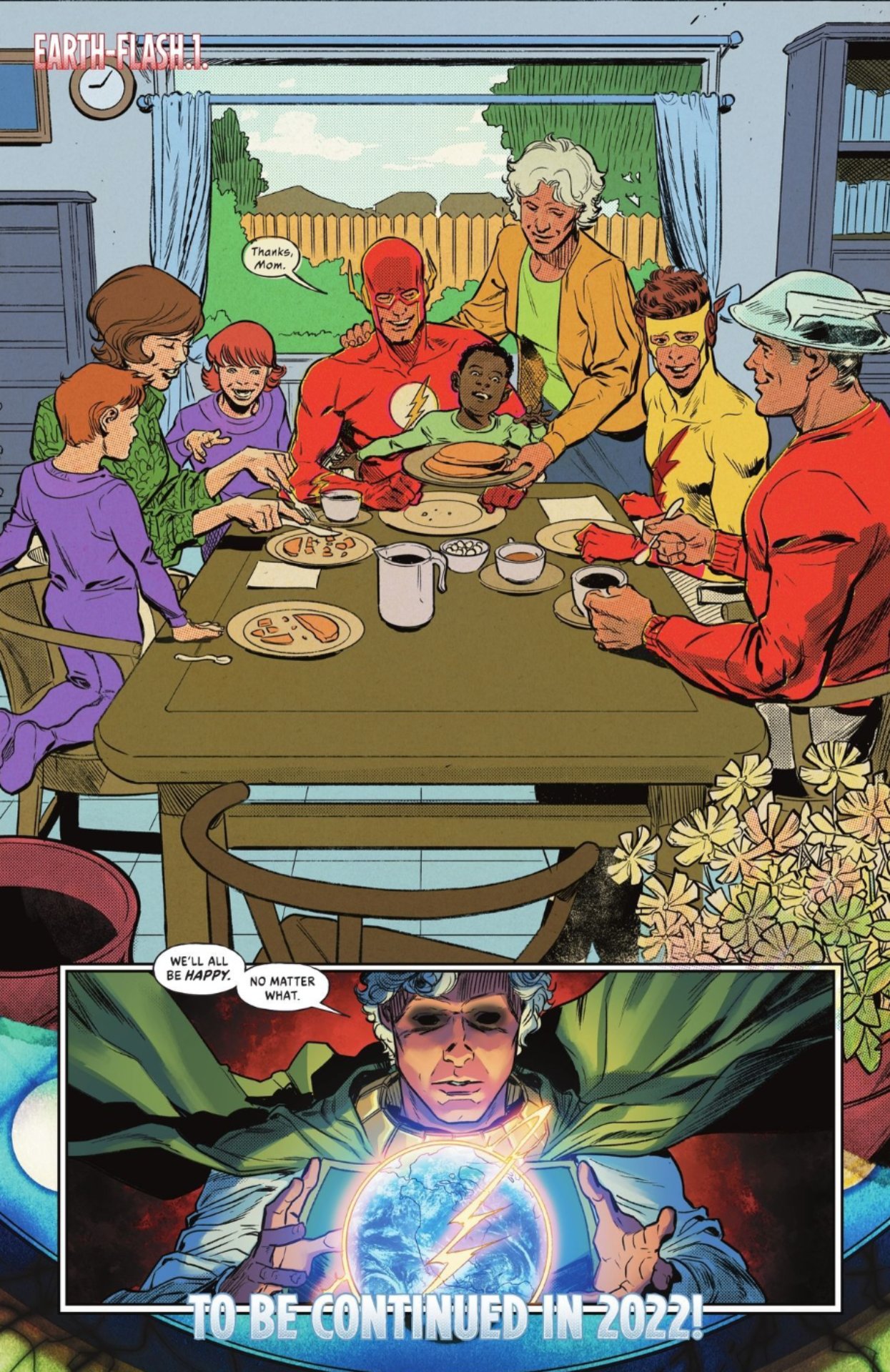
Adams: Yeah, Barry is sitting at a table, and everyone is there and they're having a meal. You're like what is this? So we've got two environments juxtaposed against that one.
Working with Amancay, well, he's not going to get much direction from me, because he's a genius. The art is always better than what I had in my brain. There's a scene, for example, in the urban environment, in this city environment, that I said would be cool if it looked sort of like one thing. Then I get it back and I'm like, "Oh, you went crazy. And it's amazing."
Nrama: I know what you're talking about and, yeah, that scene looks incredible.
Adams: It's great! And the next scene after it, when you see behind the characters and you're like, who's that? It's exciting.
Nrama: It is very exciting. Speaking of characters, there are some really interesting new ones in this book, some alternate versions of Barry Allen. Will we see any of those outside of the Search for Barry Allen?
Adams: I don't know yet. But I do find myself thinking that some of the character designs might be too cool to just stay there. You know what I mean? I think there's one in particular that I'm like, "Oh man, I like that so much." I will also tell you that there will be characters that probably will come over to the Flash book after this. But they may not be the ones you think. That will be very clear in the next couple issues.
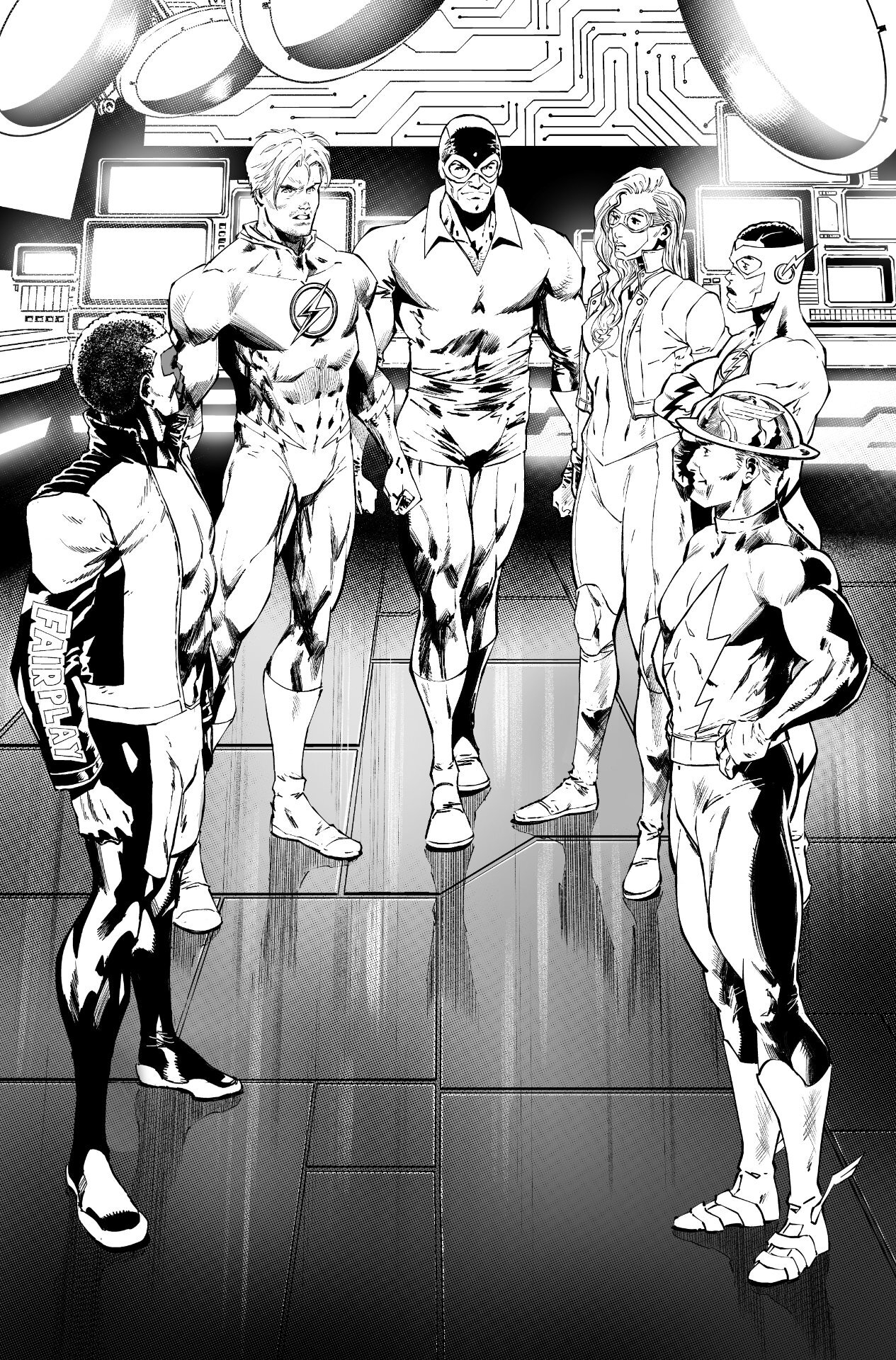
Nrama: Interesting.
Adams: It's all about mystery.
Nrama: That's true. That's so clear in this book. How do you make a good comic book mystery? After all, you've got so much information to share. How do you pace it out?
Adams: Well, some of the pacing comes from the mysteries ongoing in the actual Flash book proper, whether it's Linda with her powers or what's going on at Irongate penitentiary. I have to postpone those because now that there's a crisis. So there's some of that.
But also, I'm just a huge comic book nerd, so I've read innumerable amounts of comics and I know what I like and I know how I like pacing. For the first three books, there are facts I have to roll out, and I want them to feel like when you're reading a Stephen King novel, and you just got invested in a character, and then you turn the chapter and suddenly you're with another character now. You're like, what? What do you mean? I want to know what happens! You want to keep turning the page. I want people to be like, "I don't understand. I want to get back to this Jesse and Max or Irey and Jai," so you want to keep reading. That's what I hope happens here.
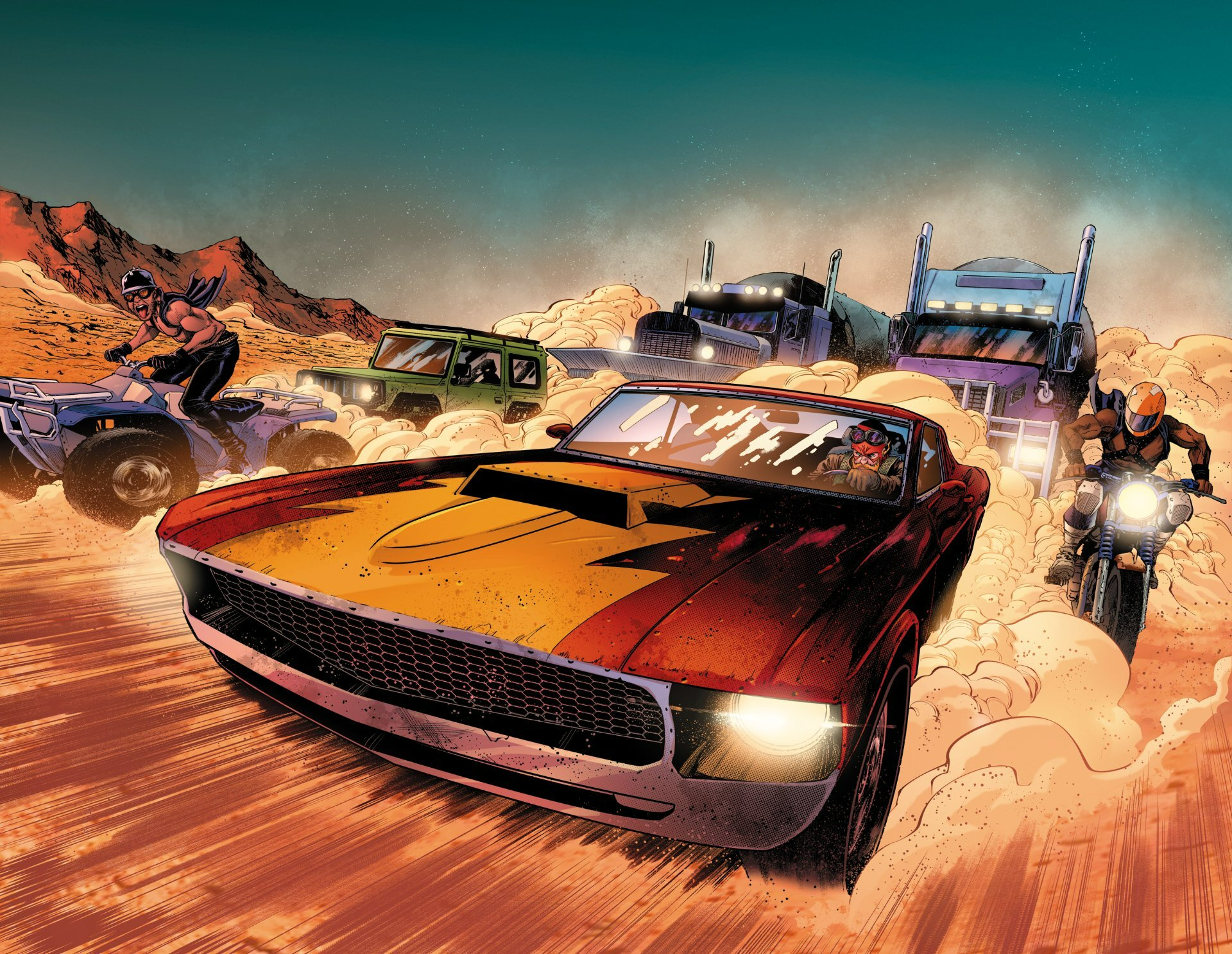
I know that there are going to be a lot of people to pick this up because of Dark Crisis, and this is going to be their first foray into this version of The Flash. I just hope that they have fun and they want to keep reading, even after Dark Crisis.
Nrama: Yeah, it's a great way to get into Flash, and into the Flash family. To wrap up, I want to go back to the future of the Flash family, like you mentioned before. What's in store for them?
Adams: I think what this is going to solidify, and you see it in the opening pages is, that the Flash family is, you know, a family. Not a dysfunctional family like the Bat-family, where it's all anger and curmudgeonly.
They're a family that supports each other, and that's kind of a unique setup. I think Wally's probably the most well-adjusted hero. He has a wife and has kids and has a job. Is there anybody else? That doesn't have kids that are assassins?
As you're coming out of this book, it's going to solidify the fact that they've got your back. Even if you're on another world, they're going to come find you. That's going to carry over. I will tell you, though, there's going to be a point in the future of the Flash book that the family bond is going to be tested. There's going to be a moment where… it's almost like people going off to college. You know, people move on as well.
Nrama: What do you mean by that?
Adams: You'll just have to see.
Ahead of 'The Search for Barry Allen,' be sure to catch up on the best Flash stories of all time.

Grant DeArmitt is a NYC-based writer and editor who regularly contributes bylines to Newsarama. Grant is a horror aficionado, writing about the genre for Nightmare on Film Street, and has written features, reviews, and interviews for the likes of PanelxPanel and Monkeys Fighting Robots. Grant says he probably isn't a werewolf… but you can never be too careful.


